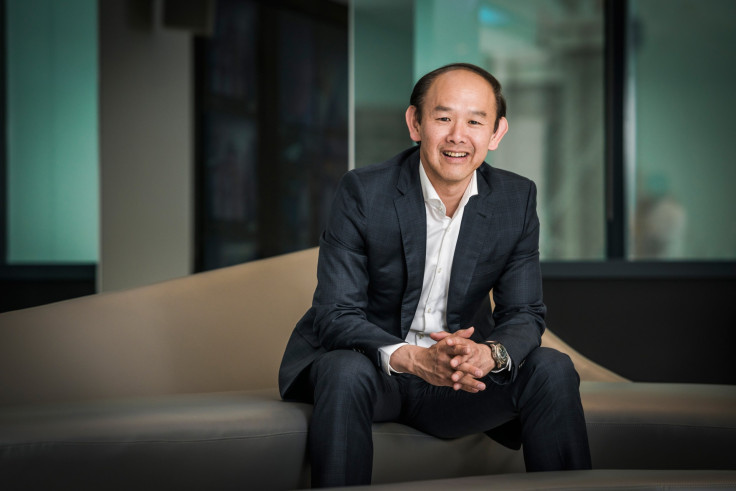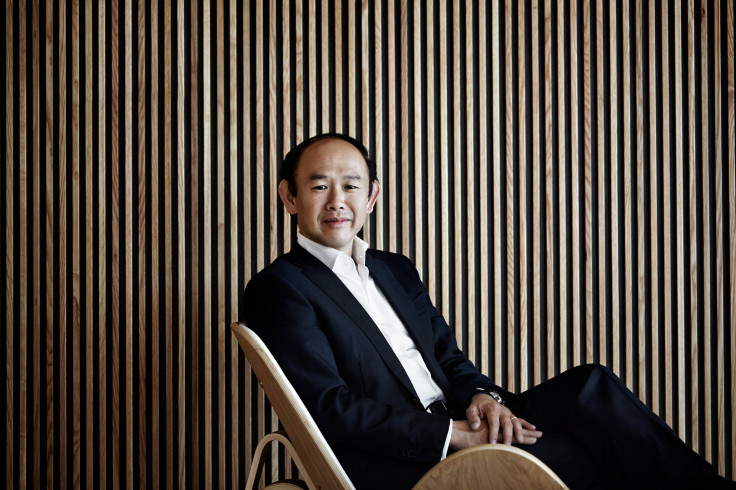Faces of our economy: How passion and vision propelled Crown Group's Iwan Sunito to new heights

The Economy is a big word that gets thrown around by politicians and professionals, businessmen and social workers, lecturers and students. It is usually associated with words like demand and supply, boom and bust, trade, distribution and production, but we at IBTimes Australia believe there’s more to our economy than just statistics and percentages. Our economy is made up of success stories, failures and everything in between, all of which would not exist without people.
Faces of our Economy is a campaign that seeks to dive deeper into the makeup of the Australian economy -- Australians from all walks of life, and at different stages of their journey.
Economics is sometimes unfairly characterised as an arcane and difficult topic, accessible only to enthusiasts and those well-versed in financial terminology. But any time spent in the company of Crown Group CEO Iwan Sunito instantly dispels such a notion. Sunito’s passion – for architecture, for economic sustainability, for development – is tangible, and passion was a concept he returned to repeatedly when I spoke to Sunito in his Sydney office.
Crown, co-founded 20 years ago by Sunito and Paul Sahito, specialises in luxury developments and has established itself as an internationally renowned development company with apartments, hotel suites and retail space. An indication of Crown’s clout is the $3.5 billion worth of pending projects that are planned across Sydney in Waterloo, Eastlakes, Ashfield, Green Square and the CBD.
Sunito himself has amassed multiple awards over his career, including the 2013 Ernst & Young Entrepreneur of the Year Indonesia’s Property & Bank Magazine Golden Leadership Award in the same year. Furthermore, he was a speaker at the 2014 Bloomberg Economic Summit.
Clearly, Sunito knows the economics of construction and development and has established a globally respected brand. Yet his prestige is all the more impressive given the low-key launch of Crown, which in its infancy was confronted with problems familiar to new businesses.
“In the early days the challenge was building the scale of the business, because nobody knows you. The good people don’t want to join you, you don’t have the brand,” Sunito explains.
“I never really had tenure with somebody else. I was just tapping into the skills out there. I became more like the conductor. You don’t know exactly what you’re doing, but you need a lot of good people around you.”
Crown’s first development was an apartment block at Bondi Junction, an opportunity which Sunito puts down to sheer fortune -- “The blessing in disguise was people from Hong Kong moving out who pumped the price: it was a stroke of luck” -- and subsequent projects cemented Crown’s reputation as a leader in the development field.
Sunito credits the early success of Crown to his enthusiasm for his projects, attributing a love of designing and developing buildings as the principal driving force during the company’s nascent years.
“Financially it was always difficult. In the first year I was only turning over $70,000, paying myself $20,000.
“But the passion carries through. I would have given up if I had focused solely on the money side. I’m not profit-centred – profit is important – but it has always been more the joy of creating new things, beautiful things”

Though many a successful businessman claims money has never been their prime motivation, speaking to Sunito it is evident that his first love is architecture and design. Born in Indonesia, Sunito admitted that his first love was drawings. Despite playing with the idea of becoming an aeronautical engineer, it was the control of projects that prompted him towards development.
“I wanted to be able to build my own buildings. I didn’t want anyone telling me what to do with my design. Being a developer you can determine your own direction.”
With this in mind, Sunito moved to Australia in 1991 to complete his BA in Architecture, following it up with a MA in Construction Management. It is these dual and complimentary degrees that Sunito believes gave him a unique edge in the development industry.
“My architecture degree taught me about aesthetics – space, colour, feel, touch, dimensions. But architects are not normally trained financially, because it’s about beauty and art, and not about delivery or the financial cost.
“My Construction Management MA taught me to build buildings with regard to the world economy, and to understand government and fiscal policy – understanding the banking side of business. These two skills make me a strong developer.”
The alchemy of construction, management and sales distinguishes Crown Group from rival firms, according to Sunito, as it means that Crown is present at each stage of the development process -- something that was very useful when it came to starting out.
“I was an architect, my friend was a real estate agent and another was a builder. We had a one-stop shop. It’s what makes us strong. It is a vertically integrated structure: so you design it, you build it, you sell it.”
This triangulation of all the key stages of construction has been the foundation of Crown’s success, along with sound financial risk assessment. Despite Sunito’s firm commitment to architectural innovation and beauty, he is under no illusions when it comes to finances and thoroughly understands the economics of development.
“It has got to stand financially, cost wise, selling wise. What is the exit strategy? What if the economy collapses tomorrow? Can you get of it? What if the residential market is busted tomorrow? Can you get out of it?
“If it doesn’t pass the market exit strategy test then we don’t normally do it. You’ve got to find a different way to make money.”
One tested method of making money is to attract foreign investment, something Crown Group has primarily focused on. Sunito recognises that Australia’s relative proximity to Asia – and it’s hugely contrasting culture – is the reason many Asian students arrive here.
“The new wealth in the world which is Asia. Australia being geographically close but culturally far away is a powerful thing. Asian parents want to send their kids somewhere to enrich them and Australia is the perfect destination.”
He has spent over half of his life in Australia and speaks with evident love for his adopted city of Sydney. Financially, too, Sunito believes Sydney is an ideal location for potential investors.
“Sydney is unique, and is Crown’s whole strength – it has a small population but big buying power. It has a world platform with global investors. Most importantly, the government is spending money to make it number one. Big investment is happening. We are becoming wealthy, and surrounded by the wealthier.”
Sydney’s international reputation may aid Crown’s developments, but Sunito was keen to stress the mutual nature of this relationship, with some of Crown Group’s innovative structures have undoubtedly enhanced the city’s reputation. With more Crown developments in Sydney due, I wondered what economic vision Sunito forecasts for Sydney in 10-15 years’ time.
“I would not be surprised for if Sydney became a hub for innovation. The benefit is that we [Sydney] attract the global market. We attract the best of the best around the world and educate the best of the best.
“It would not surprise me if the new Facebook pops up in Sydney because we have that platform. I’m also hoping that in 10-15 years, the government are not talking about connecting Parramatta to Sydney. Instead, I want to see Brisbane-Sydney-Melbourne. Bullet trains will inevitably result in these three-in-one cities.”
Given Crown Group’s track record so far it would appear that Sunito is well placed to offer accurate projections of Sydney’s future, a city which has developed and altered dramatically in the 20 years since Crown's foundation. His message to budding developers and architects is something that has clearly held guided Crown's path to success.
“Find your own voice and shout it loud. Be good at what you’re really good at. Money is important but the money should follow the vision.”





















